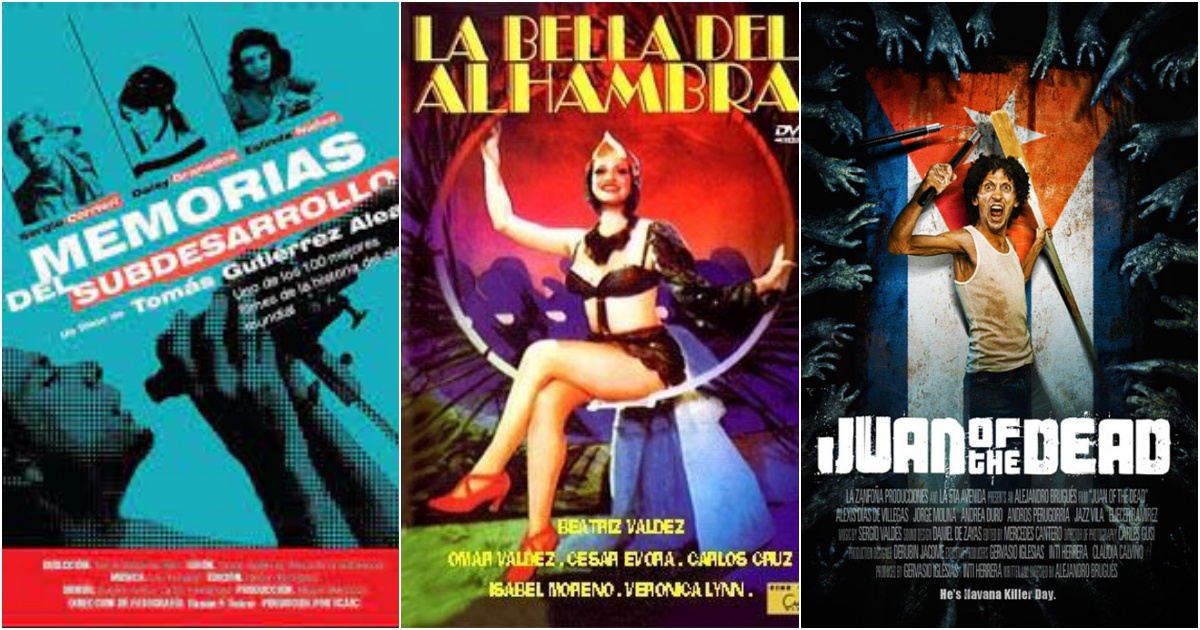
In the history of cinema, there is a corner in the Caribbean that has produced a surprising amount of films exciting: Cuba. Through the lens of cuban filmmakers, we have gained a unique insight into island life.
Next, we present the 10 most popular Cuban films and acclaimed, each one of them a testimony of the culture, the history of this nation.
"Memories of Underdevelopment" (1968)
Directed by Tomás Gutiérrez Alea, is one of the most emblematic works of Cuban and Latin American cinema. Based on the novel of the same name by Edmundo Desnoes, presents the post-revolutionary Cuban reality from the perspective of a bourgeois writer who decides to stay in Cuba after his family emigrates. Its introspective and reflective narrative explores the contradictions and conflicts of that time.
"Lucia" (1968)
Made in the same year as "Memories of Underdevelopment", "Lucía" by Humberto Solás, is another gem of Cuban cinema. The film tells the life of three women named Lucía in three crucial moments in the history of Cuba. Each one reflects the social and political evolution of the island, demonstrating how it impacts people's lives.
"Strawberry and Chocolate" (1993)
This movie Tomás Gutiérrez Alea and Juan Carlos Tabío It was the first Cuban production nominated for the Oscar for Best Foreign Film. The plot revolves around the relationship between a young communist and a homosexual artist, addressing the issue of tolerance and sexual diversity. It is a powerful statement against homophobia and in favor of freedom of expression.
"Death of a Bureaucrat" (1966)
Another iconic film Tomás Gutiérrez Alea, is a hilarious satire of post-revolutionary Cuban bureaucracy. The plot follows a man trying to unearth his uncle to recover a model worker medal that was buried with him. Their attempts run afoul of inflexible bureaucracy, providing a scathing and humorous critique of inflexible systems.
"Suite Habana" (2003)
This documentary directed by Fernando Perez It is a cinematic gem. Without words, the film follows the lives of the inhabitants of Havana, with a lyrical approach and a deep look, it is a portrait of the Cuban capital.
"The other Francisco" (1975)
Based on an 1839 novel about slavery, this film Sergio Giral offers a critique of the slave system in Cuba. Giral reinterprets the novel to show the true experiences of the slaves, creating a work that is both a historical drama and a film of social denunciation.
"Long live Cuba" (2005)
Directed by Juan Carlos Cremata Malberti, "Viva Cuba" is a moving story of friendship between two children from different social classes who decide to run away from their families. The film offers a moving look at life in modern Cuba and won the Grand Prize at the Montreal Children's Film Festival and Best Film at the Würzburg International Film Festival, Germany.
"The Beauty of the Alhambra" (1989)
This musical film Enrique Pineda Barnet It is based on the novel Rachel's Song by the Cuban writer Miguel Barnet. It presents life in Havana during the 1920s and 1930s through the story of a singer from a popular cabaret. She was the winner of several international awards such as best female performance for Beatriz Valdes at the New York Latin Festival.
"Juan of the Dead" (2011)
Alejandro Brugues offered a fresh and unique look at the zombie genre. In the film, the living dead invade Havana and a group of friends decide to take advantage of the situation to do business, offering their services to get rid of the annoying zombies. This is a horror comedy with a unique Cuban touch.
"The Age of the Peseta" (2005)
It was directed by Pavel Giroud, is a beautiful story set in Havana in the 1950s. It follows an introverted boy named Samuel and his relationship with his grandmother. This film has won several awards and is a moving story about the loss of innocence and coming of age.
It is 10 most popular Cuban films, provide us with a look at the island's cinema, its history and its culture. From historical dramas to satirical comedies, each offers a unique vision that transcends borders and connects with audiences around the world.
What do you think?
SEE COMMENTS (1)Filed in: